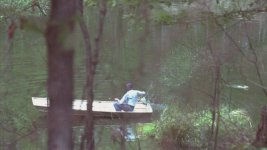I'm still waiting for 3/26 and any graphics Glenn might provide.
-
Happy Old Rock Day! 🌍🪨💎
You are using an out of date browser. It may not display this or other websites correctly.
You should upgrade or use an alternative browser.
You should upgrade or use an alternative browser.
Happy National………Day
- Thread starter PaddlingPitt
- Start date
1st National Park day is worth celebrating for sure!
Happy National Paddlefish Day?
If you’re not familiar with these things, the video is pretty good. I’ve fished for them on both the Missouri and the Yellowstone, when we lived in N.Dakota 30 yrs ago. Lots of work and i wasn’t all that impressed with the meat. Some say it taste like Lobster; i must have caught some duds!
If you’re not familiar with these things, the video is pretty good. I’ve fished for them on both the Missouri and the Yellowstone, when we lived in N.Dakota 30 yrs ago. Lots of work and i wasn’t all that impressed with the meat. Some say it taste like Lobster; i must have caught some duds!
First day of spring! Worthy of celebration (and libations).
So that's how the extraterrestrial abductions occur! (Happy Extraterrestrial Abduction Day!)First day of spring! Worthy of celebration (and libations).
Some people will go to absurd lengths to avoid a portage.So that's how the extraterrestrial abductions occur! (Happy Extraterrestrial Abduction Day!)
So disappointed in your choice for today.

 www.internationaldays.co
www.internationaldays.co
Free The Nipple Day - March 26, 2025 | internationaldays.co
Held on March 26th, Free The Nipple Day highlights the unjust treatment of women for being perceived indecent if appeari
 www.internationaldays.co
www.internationaldays.co
So disappointed in your choice for today.

Free The Nipple Day - March 26, 2025 | internationaldays.co
Held on March 26th, Free The Nipple Day highlights the unjust treatment of women for being perceived indecent if appeariwww.internationaldays.co
Yes, Free the Nipple Day was the road not taken on Robert Frost's birthday. But hopefully we don't have to be mending wall about these diverging divergences.
One of my favourite poems of Robert Frost seems timely, just as winter is losing it's grip.
Whose woods these are I think I know.
His house is in the village though;
He will not see me stopping here
To watch his woods fill up with snow.
My little horse must think it queer
To stop without a farmhouse near
Between the woods and frozen lake
The darkest evening of the year.
He gives his harness bells a shake
To ask if there is some mistake.
The only other sound’s the sweep
Of easy wind and downy flake.
The woods are lovely, dark and deep,
But I have promises to keep,
And miles to go before I sleep,
And miles to go before I sleep.
"Frost didn’t publish his first book until 1913, when he was almost 40. But in the decade that followed, he published three more books, the last of which, New Hampshire (1923), won a Pulitzer Prize. That volume contained this poem, one of his best known and most beloved, which was apparently inspired by a real incident, one that may help explain what was behind his enormous burst of creativity. In the years before he found literary stardom, Frost lived in poverty in New Hampshire, farming to support his family and struggling to finish his first book. Riding home on the winter solstice, the story goes, Frost stopped and began to cry on the side of the road, overwhelmed by shame: he hadn’t sold enough at market to give his family a good Christmas. Such personal details are left out of the poem’s final version to accommodate a much broader series of interpretations, but their impression lingers: the woods, dark in literal and perhaps figurative ways, offer oblivion for the dispossessed speaker, who nonetheless chooses obligation and the hard work ahead. After all, he believed “the woods are lovely” because they are “dark and deep.” The spellbinding repetition at the end of the poem—“And miles to go before I sleep”—has been interpreted to reference the big sleep of death." - Benjamin Voigt
- Poetry Foundation (poetryfoundation.org)
Stopping by Woods on a Snowy Evening
BY ROBERT FROSTWhose woods these are I think I know.
His house is in the village though;
He will not see me stopping here
To watch his woods fill up with snow.
My little horse must think it queer
To stop without a farmhouse near
Between the woods and frozen lake
The darkest evening of the year.
He gives his harness bells a shake
To ask if there is some mistake.
The only other sound’s the sweep
Of easy wind and downy flake.
The woods are lovely, dark and deep,
But I have promises to keep,
And miles to go before I sleep,
And miles to go before I sleep.
"Frost didn’t publish his first book until 1913, when he was almost 40. But in the decade that followed, he published three more books, the last of which, New Hampshire (1923), won a Pulitzer Prize. That volume contained this poem, one of his best known and most beloved, which was apparently inspired by a real incident, one that may help explain what was behind his enormous burst of creativity. In the years before he found literary stardom, Frost lived in poverty in New Hampshire, farming to support his family and struggling to finish his first book. Riding home on the winter solstice, the story goes, Frost stopped and began to cry on the side of the road, overwhelmed by shame: he hadn’t sold enough at market to give his family a good Christmas. Such personal details are left out of the poem’s final version to accommodate a much broader series of interpretations, but their impression lingers: the woods, dark in literal and perhaps figurative ways, offer oblivion for the dispossessed speaker, who nonetheless chooses obligation and the hard work ahead. After all, he believed “the woods are lovely” because they are “dark and deep.” The spellbinding repetition at the end of the poem—“And miles to go before I sleep”—has been interpreted to reference the big sleep of death." - Benjamin Voigt
- Poetry Foundation (poetryfoundation.org)
Last edited:
A day late and a dollar short, and maybe I missed it here anyway, but my wife who just started working at the local VA hospital reminded me that yesterday was National Vietnam War veterans day. Thanks especially to those who served then. @Robin I'm thinking of you, but there are probably others. Thank you all.
Boreal Birch, USAF...... I'm thinking of you, but there are probably others. Thank you all.
Last edited:
World's 1st animated cartoon:
Glenn were people nice to you today?
In all fairness (happy belated birthday to Glenn's mom btw), it was also National Poutine Day today, and not to take anything away from that dish it was also National Cheese Fondue Day...not forgetting National 8 Track Tape Day too. So, the lawyer thing sounds like a stretch. But I think we can all agree to be nice to Glenn, for one day. Hope you had a good one Glenn.
Last edited:
nice to you today?
for one day
Thanks. The bad news is that lawyers apparently have to scrounge to be liked 1/365 of the time.
The good news is that my retirement career is a big step upwards in professional prestige: . . . slut.
Actually, I'm a reverse and stupid slut. I do the paying, and for redundant things I don't need and can no longer even lift.
It's even on Wikipedia! https://en.wikipedia.org/wiki/Jimmy_Carter_rabbit_incident. Ironically, pretty much any stressed, non-aquatic animal will try to get into a boat. I recently saw a vid of a cougar headed to a boat. Same thing.
Today is National Yellow Bat Day and National Rendering Day; enjoy, all!
Happy Birthday Bill.
Similar threads
- Replies
- 4
- Views
- 743
- Replies
- 8
- Views
- 1K
- Replies
- 1
- Views
- 1K

